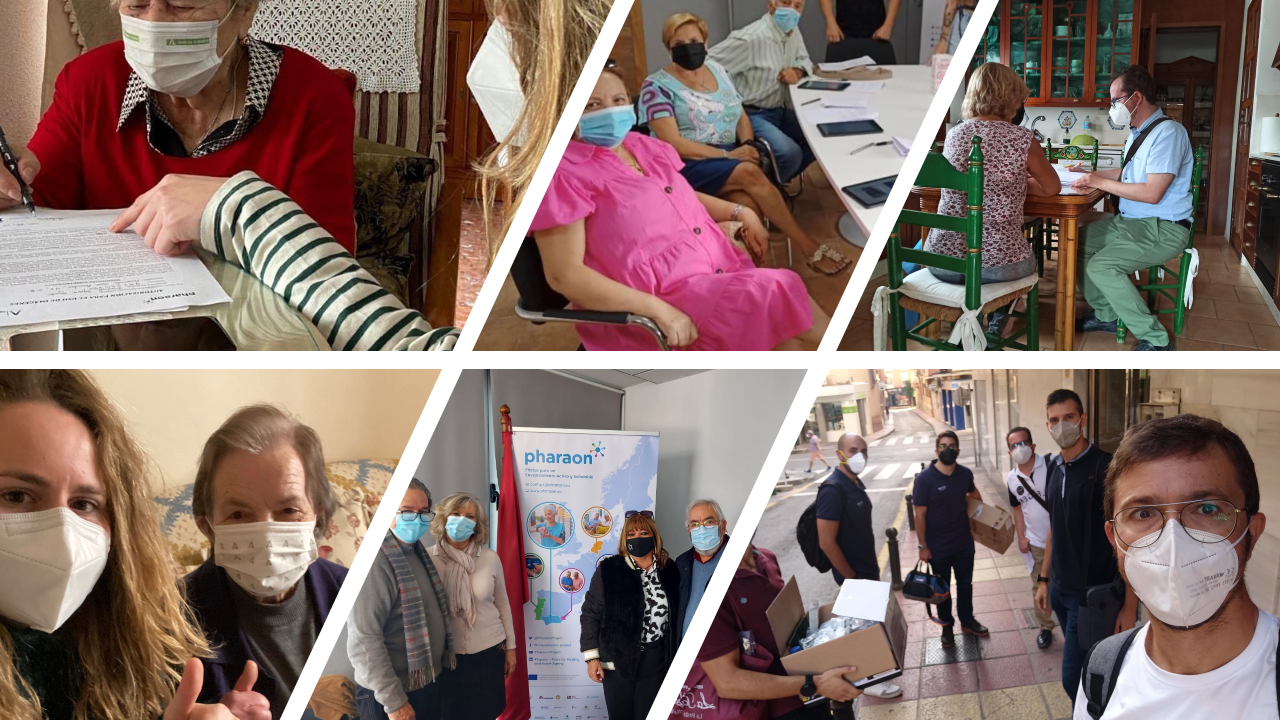
01 Mar Pre-validation results in Pharaon – facilitating the long-term use of new technologies
Digital solutions can promote independent living and support active and healthy aging of an older population; however, several factors can negatively influence the long-term use of new technologies. Hence, before deploying its digital solutions at a large scale, Pharaon ran real-world scenarios with a lower number of users in a pre-validation phase to identify the factors that can bias the use of new services.
In the Italian pilot sites, the tested services include technological solutions through which older adults are better connected to the community, and monitoring technologies (e.g. environmental monitoring sensors, a telepresence robot, wearable sensors, and a personalized dashboard) which allow for the introduction of timely interventions.
The pre-validation phase showed a connection between the stress related to the use of technology, digital skills, and intention of use. Older people with lower digital skills also mentioned anxiety about using the technology, whereas users that trusted the technologies also found them easier to use. For the large-scale deployment the key learnings were that it should rely on motivated caregivers, be founded on a strong recruitment process, and should reassure older adults—especially the ones with low digital literacy—about the use of technology by proposing personalized training and mentoring, if necessary, to increase the trust.
The Murcian pilot deploys an active assisted living solution to provide a tele-assistance platform for chronic heart failure patients from the public health service of the region of Murcia in Spain.
The pre-validation showed that all technologies and software solutions were accepted and perceived as usable at a higher rate than expected. The pre-validation phase has also been useful to improve the technology readiness of the healthcare platform solution.
In the case of the Andalusian pilot, a social network was adapted for older people, enabling them to communicate with the community at home and share their experiences. In addition, to improve their physical fitness, a device to count active minutes and steps is included, which provides users and caregivers with a visible and objective metric of daily health status.
The pre-validation has shown that even though participants found the devices easy to use, they did not accept them and did encounter problems in using them in practice. In this sense, the pre-validation process has allowed the project to specifically define how the technology needs to be improved to be better usable and accepted by older people in the Andalusia region. Furthermore, the pre-validation showed that most participants were women which is in line with the number of applicants for services at the Institute for older people and social services (about 70%). This data is relevant since it clarifies that women will likely be the primary potential market segment for developed services, especially in the region of Andalusia.
Overall, pre-validation has allowed the Pharaon projects to improve and better adapt the technological solutions to its target audience ahead of the full large-scale deployment.

